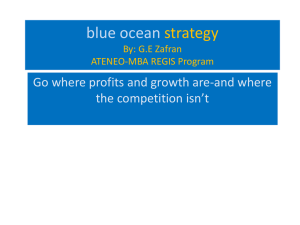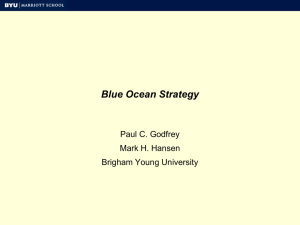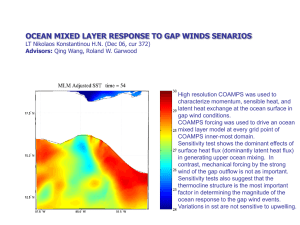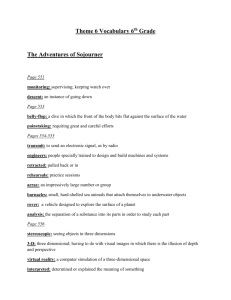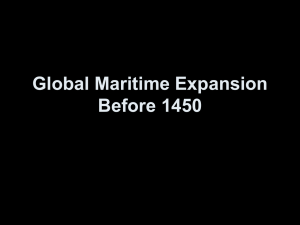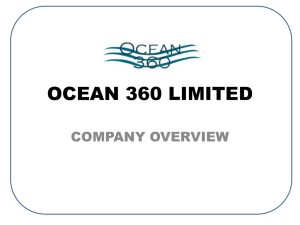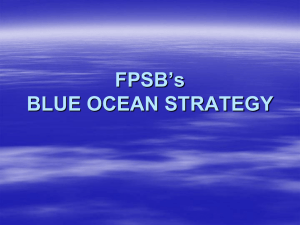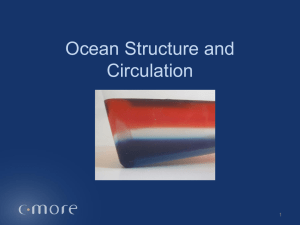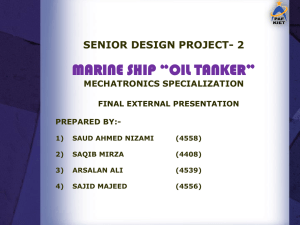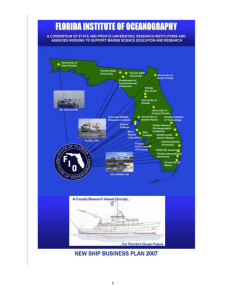Catalysing Ocean Finance
advertisement
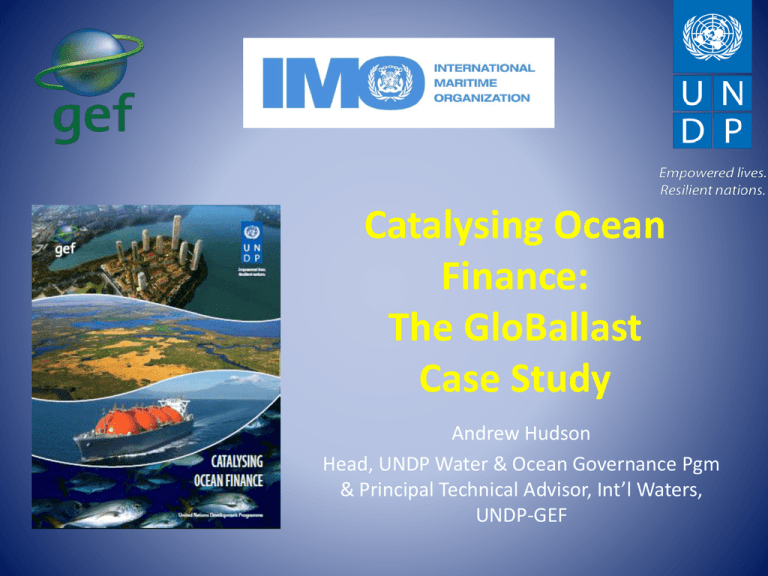
Catalysing Ocean Finance: The GloBallast Case Study Andrew Hudson Head, UNDP Water & Ocean Governance Pgm & Principal Technical Advisor, Int’l Waters, UNDP-GEF Catalysing Ocean Finance – Key Messages • Most ocean threats – hypoxia, acidification, habitat loss, ocean warming, invasive aquatic species – accelerating • All are due to policy & market failures; for ship invasives is lack of internalizing cost of ‘clean’ ballast water in ship operations • Suite of (3) methodologies have proven effective at achieving local, national, regional and global ocean governance reforms • Modest sums public finance (GEF$) can create enabling policy environment which can catalyse sizeable sums public & private finance and transform entire ocean sectors towards sustainability • Opportunity in late 1990’s to build on and strengthen international efforts on ballast water already underway through IMO Catalysing Ocean Finance Case Studies Case Study Methodology/A pproach GEF Grants ($ m.) Catalysed Public & Private Finance ($ m.) Catalytic Ocean Finance Ratio Result Danube/Black Sea basin TDA/SAP 51.9 2,980 57:1 Reduced nutrient loads, reversal of Black Sea hypoxic area Yellow Sea LME TDA/SAP 14.744 10,860 Rio de la Plata TDA/SAP /Maritime Front 9.31 2,620 281:1 Significant reductions in sewage, nutrient, industrial pollution loads to RPMF E. Asian Seas /PEMSEA ICM 36.1 10,000 277:1 11% of East Asian coastline under ICM (vs. ~0% baseline); 20% target for 2015 W/C Pacific Fisheries Build on regional legal framework 15.1 3,214 GloBallast Build on global legal framework 14 35,000 737:1 30% reduction fishing capacity, 10% reduction nutrient discharges every 5 years 222:1 Moving 1/3 world’s tuna fishery towards sustainability 2,500:1 New global convention on ship BW; significant reductions in invasive species introductions Generic Approach to building on global and regional legal frameworks GloBallast Project Strategy Policy Development • Principles • Detailed Policy and NBWMS Review (Legislations, Policies and institutional Arrangements) Capacity Building Global/regional harmony Models/guidelines Knowledge sharing Technology solutions Implementation Reform Phase • Legislative Reform • Institutional Rationalisation GloBallast – Catalysing a Global Convention on Ship Ballast Water New opportunities to further catalyse shipping sector transformation towards sustainability Shipping energy efficiency standards Approach • Tools, methodologies, standards, guidelines to promote uptake IMO EE guidelines – Ship Management Plans (SEEMP) – Ship Design Standards (EEDI) – Facilitate PS R&D Costs/Benefits/Catalysis • Public Cost: $10-20 million • Benefits and avoided costs: – Climate impacts $19 billion/yr (2050) – Fuel savings $90$310/billion/yr (2030) • Catalysed Finance: many billions $ Ship Hull Fouling – Invasive Species Vector Approach • Support convention negotiations & enhanced nat’l/reg’l implementation capacity • Tools, methodologies, standards, guidelines • Facilitate private sector technology R&D Costs/Benefits/Catalysis • Public costs: $10 million • Benefits/avoided costs: $10-90 billion/yr • Catalysed Finance: $10-30 billion?
